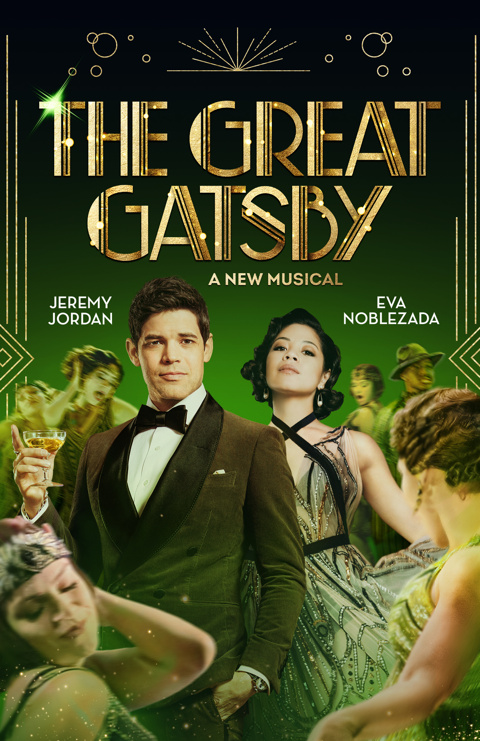The Great Gatsby (2024) is yet another flashy, high-budget Broadway adaptation that has been gaining popularity. Starring Tony-nominated actor Jeremy Jordan as Jay Gatsby, and two-time Tony-nominated actress Eva Noblezada as Daisy Buchanan, the show has been heavily promoted on social media and billboards alike, advertised as Broadway’s newest spectacle. Unfortunately, beyond the well-crafted set pieces and excellent performances by its leads lies the wasted potential of reviving a beloved classic.
While the show’s plot roughly follows the novel, many of the nuances of Fitzgerald’s work are abandoned for the sake of a punchline or a misplaced ballad. Married couple Kait Kerrigan and Nathan Tysen, the playwright and lyricist of the musical, have no issue mischaracterizing the principal cast to the point of assassination if it means they can add another quip. Their attitude toward the material does not come across as creative liberty, but rather a fundamental misunderstanding of why the novel is taught and revered to this day. A noticeable consequence of this misinterpretation is the lack of Nick Carroway (Noah J. Ricketts). There is simply no consistent narrator or a cohesive narrative to the story, presumably because it is easier to advertise the illustrious Jay Gatsby on billboards.
Ultimately, this approach to The Great Gatsby as a work is what leads to one of the show’s two biggest problems: its refusal to take itself seriously. The serious themes of domestic violence and classism are sloppily buried under cheap, surface-level jokes, resulting in the audience not being able to truly take in what they are viewing. The show’s approach to Myrtle, specifically, feels borderline ignorant, as the only time her struggles are taken seriously is during her solo in Act II.
Beyond the show leaning away from its main themes, it refuses to commit to the aesthetics and feel of The Great Gatsby. The show entirely oversold itself as this opulent, roaring ‘20s phenomenon. It has the concept of flash and flappers without properly styling the show to transport the audience. The costumes occasionally felt like flapper costumes anyone could buy online, the sets did not fully utilize the classic gold color depicted in the novel, and the jazz element was seemingly lost from nearly every aspect of the show.
While there is nothing wrong with a modernized adaptation in theory, the oversaturation of modernized shows currently on Broadway (e.g.: & Juliet and Romeo + Juliet currently coexisting) leaves The Great Gatsby with a task it did not measure up to. The songs are devoid of any classic jazz feelings and, beyond that, are, for the most part, not the most challenging or fitting in the current context of the story (although I have been streaming “New Money” on repeat since seeing the show). However, the show does insist on emulating the novel to some degree and set the musical in its traditional period. Due to the show not being entirely modernized or entirely faithful, this lack of commitment results in a lackluster, gauche production.
The Great Gatsby’s most significant contribution (apart from allowing me to hear Jeremy Jordan sing live) is that it provides a clear example of everything wrong with modern entertainment. Not only musicals but movies and music as well. Everything must be a remake or some form of adaptation to be a success, but the effort to make the new project stand out on its own is seldom made. These productions are making money from their branding, not their content.

When looking at the Thanksgiving weekend movie box office or the slate of shows that have recently taken over Broadway (Death Becomes Her, Gypsy, The Outsiders), it has become increasingly evident that mediocrity is welcome in entertainment as long as the brand name is there. Even if the show in question is not necessarily bad (like some listed above), these new projects set a dangerous precedent for the near future of the entertainment industry.
The Great Gatsby will most likely not close anytime soon, and there are already plans to replace Jeremy Jordan with Ryan McCartan (Heathers). The show is undeniably popular and will remain a must-see on Broadway for months, possibly years to come. It is simply unfortunate to see what the show needed to sacrifice to be on Broadway in the first place.


